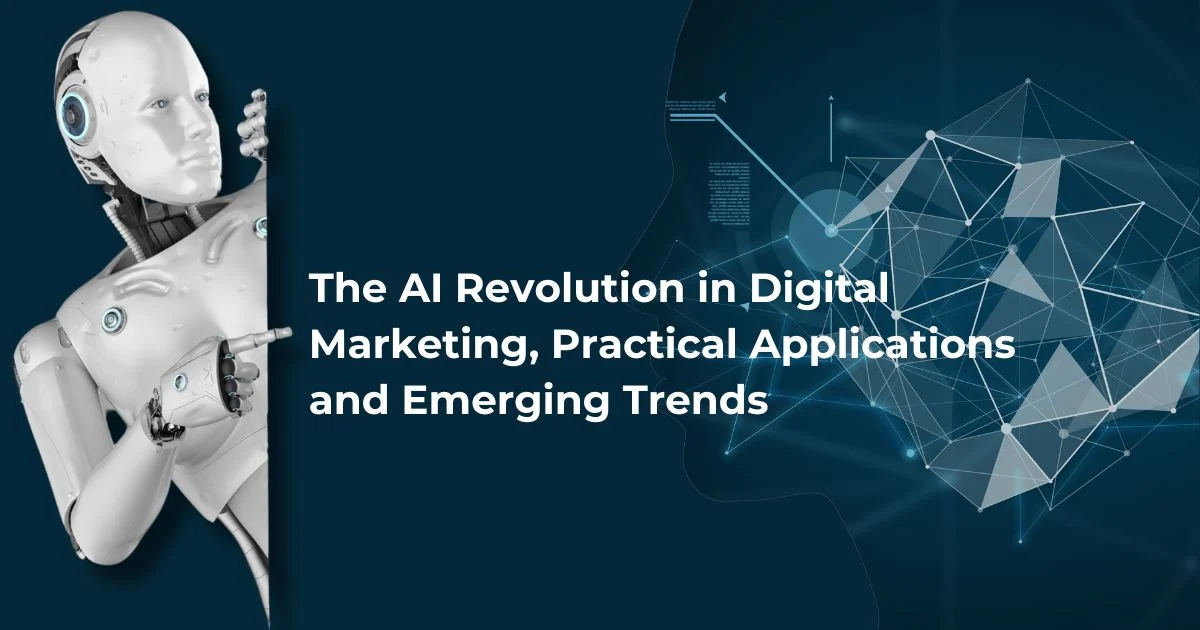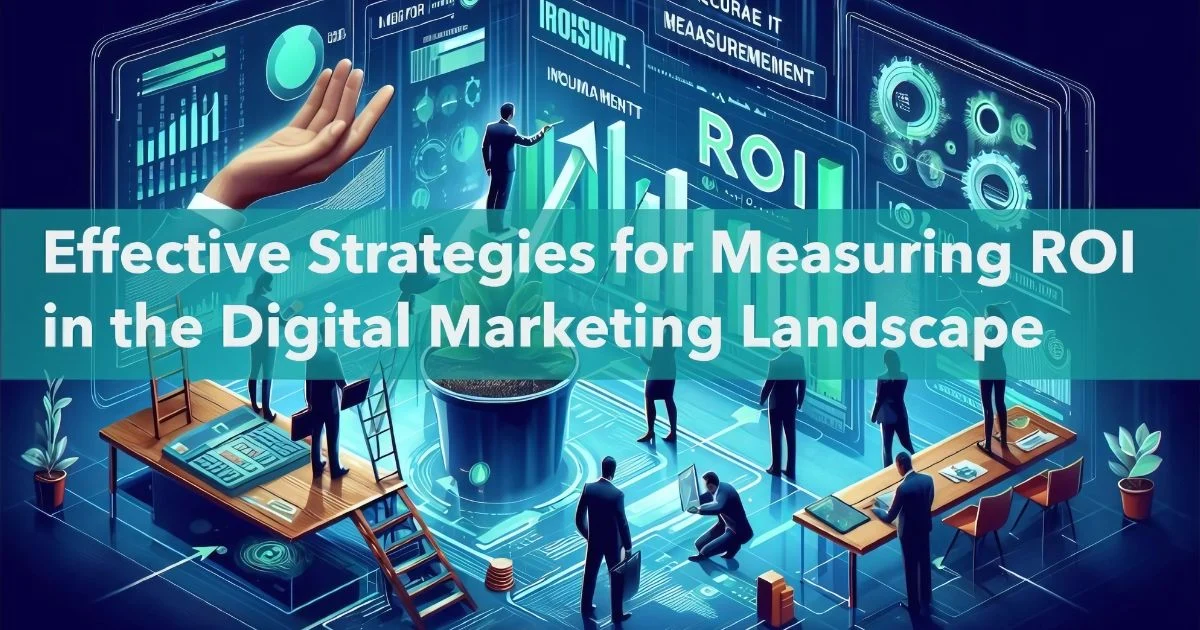
The AI Revolution in Digital Marketing: Practical Applications and Emerging Trends
In today’s fast-paced era, artificial intelligence has revolutionised the digital marketing industry by automating scheduled tasks, optimising campaigns, and enhancing users’ experiences. Through this article, we intend to explore artificial intelligence’s deeper insights and comprehend how it has evolved in the digital marketing sector.
Evolution of Artificial Intelligence
The evolution of artificial intelligence (AI) has indeed set the ball rolling when it comes to changes in the digital marketing sphere. AI is thus crucial for businesses that deal with massive volumes of data by sailing smoothly through this gigantic sea of information. AI in Digital Marketing also helps to improve the effectiveness of many processes such as numbers and details processing, user behaviour forecasts, and even content generation. From technological advancement, marketers require knowledge of how AI transforms traditional marketing strategies to become relevant within the competitive market.
Real-World Applications

Listed below are some of the real-world applications of artificial intelligence that businesses must be aware of:
- Personalised Customer Experiences:
AI uses historical data to offer personalised experiences to customers. By properly analysing the behaviour, preferences, and interactions of the user with the brand, artificial intelligence can effectively recommend products, customise content, and curate playlists accordingly. For example, platforms like Spotify can effectively create hyper-personalized playlists with the help of AI to enhance the experience and satisfaction level of their users.
- AI-Powered Chatbots:
AI-Powered Chatbots offer 24/7 assistance to customers to enhance the level of their experience. In addition, it aims to manage multiple customer inquiries and provide them with personalised interactions. These AI-powered chatbots make use of natural language understanding (NLU) to engage customers with natural and more effective conversations. Esteemed brands like Starbucks and Alibaba leverage artificial intelligence to enhance customer interactions and streamline their services.
- Email Marketing:
AI helps businesses and brands tailor personalized email marketing campaigns by analyzing the behaviour of the users and sending emails to the target audiences. It enables them to optimize the content, subject lines, and send times, to enhance the brand value in the market. More importantly, tools like Phrase make use of AI to optimize email campaigns for better results.
- Content Creation:
AI automates the process of content creation including everything from creating exclusive blog posts to video scripts. This assists businesses in creating a consistent content strategy to enhance the rate of engagement without the need for any manual effort.
- Voice Search and AI Assistants:
With the increase in voice searches, promoted by AI assistants like Siri and Alexa, has entirely reshaped SEO strategies. Marketers now optimize their content to ensure its authenticity and natural language queries and focus on local SEO to capture voice search traffic. This trend is making searches more conversational and context-specific.
- Augmented Reality (AR) and Virtual Reality (VR):
Integrating artificial intelligence with Augmented Reality (AR) and Virtual Reality (VR) creates incredible customer experiences. Brands leverage these technologies for virtual try-ons, interactive product demonstrations, and enhanced customer engagement.
Future Trends
Hyper-Personalization:
Artificial Intelligence intends to propel a higher level of personalization in the digital marketing sector. By analyzing the huge spectrum of data, AI can successfully create highly personalized marketing messages and offers to enhance the rates of engagement and conversions among customers.
Predictive Analytics:
Predictive analytics powered by AI is expected to become more significant in the upcoming days, hence enabling marketers to predict the needs and behaviours of the customers. It will also enable marketers to implement proactive marketing strategies to enhance satisfaction among customers.
AI-Powered Automation:
Automation of marketing techniques enables businesses and brands to optimize the flow of work, minimise the need for manual efforts and bring the business to higher levels of success. From generating content to managing campaigns, AI streamlines the procedure and enhances the efficiency of marketing campaigns.
Enhanced CRM Systems:
AI-integrated Customer Relationship Management (CRM) systems will offer deeper insights into customer behaviour and preferences. These systems will help businesses manage large data sets, automate CRM tasks, and improve customer relations (Shane Barker).
Advanced AI in AR/VR:
As AR and VR technologies evolve, their integration with AI will offer even more sophisticated and interactive customer experiences. These advancements will blur the lines between digital and physical interactions, creating new marketing opportunities (Spiralytics) (Digital Agency Network).
AI is set to further transform digital marketing by making it more data-driven, personalized, and efficient. Businesses that leverage AI technologies will be better positioned to meet customer expectations and stay ahead in the competitive landscape.
Conclusion
The role of artificial intelligence in digital marketing is not just a passing trend; it is a transformative force that is redefining the industry. AI enables companies to stay ahead of the competition by automating various tasks, delivering personalized customer experiences, and enhancing engagement through innovative technologies such as augmented reality, virtual reality, and voice search.
As trends such as hyper-personalization, predictive analytics, and AI-driven automation advance, the future of digital marketing looks set to offer even more efficiency and innovation. Companies that adopt AI will discover new opportunities, provide exceptional customer satisfaction, and strengthen their standing in a competitive market.
FAQs
Q: How does AI impact marketing?
AI automates tasks, personalizes experiences, and improves campaign efficiency.
Q: What are key AI applications?
AI powers chatbots, personalized emails, content creation, and voice search optimization.
Q: What is hyper-personalization?
Using AI to deliver highly tailored messages and offers.
Q: Why is AI important for SEO?
It optimizes for voice search, natural language, and local queries.
Q: What are future AI trends?
Enhanced automation, predictive analytics, and AR/VR integration.
Q: Why adopt AI in marketing?
For better efficiency, customer engagement, and competitive advantage.

